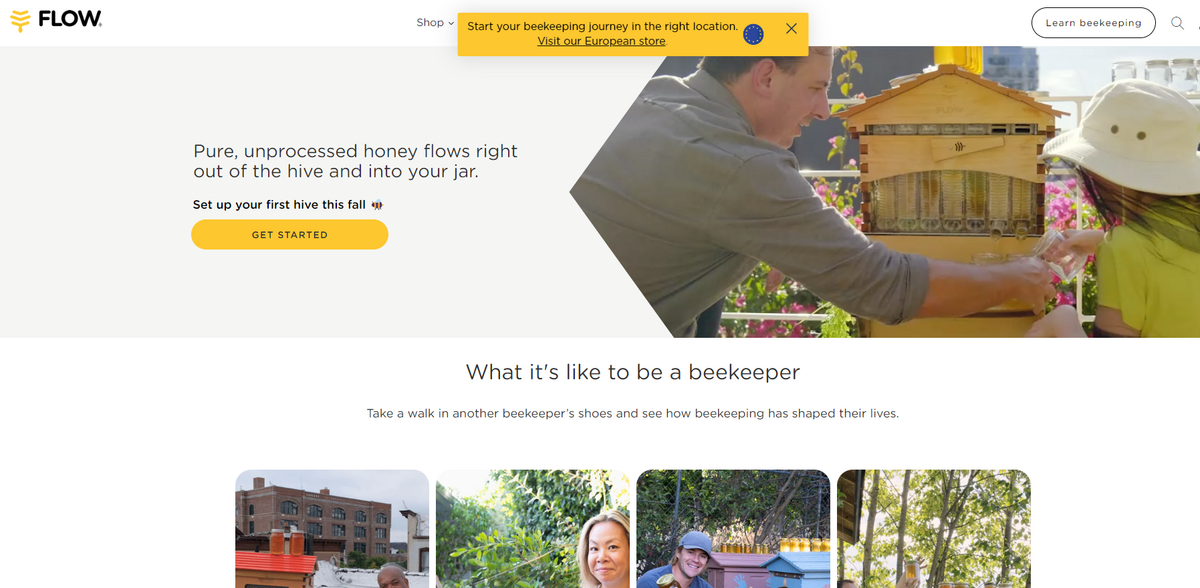Beekeeping and Its Environmental Significance
Beekeeping is a fascinating hobby that not only rewards you with delicious honey but also plays a crucial role in supporting our environment. The Flow Hive has transformed the way we think about beekeeping and honey harvesting. This innovative system allows beekeepers to extract honey directly from the hive without disturbing the bees, making it easier and more sustainable. In this article, we will explore the benefits of the Flow Hive, how it works, and its connection to sustainable development goals.
- Harvest honey without disturbing the bees.
- Minimize the need for heavy lifting and expensive equipment.
- Promote bee health and well-being.
- Encourage community engagement and education about beekeeping.
- Support local ecosystems and biodiversity.
Understanding the Flow Hive
The Flow Hive is a revolutionary beehive system invented by Stuart and Cedar Anderson. It allows beekeepers to harvest honey straight from the hive using a patented technology that minimizes disturbance to the bees. The design includes Flow Frames, which are made from food-grade plastic. These frames enable bees to build their comb naturally, and when the honey is ready, beekeepers can simply turn a key to release the honey into a jar. This method is not only easier but also gentler on the bees, ensuring their health and productivity.
The Benefits of Sustainable Beekeeping
Sustainable beekeeping is essential for maintaining healthy bee populations and supporting biodiversity. The Flow Hive promotes sustainable practices by reducing the stress on bees during honey extraction. Traditional methods often involve opening the hive, which can disturb the colony and lead to stress for the bees. With the Flow Hive, beekeepers can monitor the hive’s health without invasive inspections, allowing bees to thrive. This approach not only benefits the bees but also results in higher quality honey with unique flavors that reflect the local flora.
Community and Education
Flow Hive is more than just a product; it’s a community. The company is committed to educating and empowering beekeepers around the world. Through resources like the Flow Forum, beekeepers can connect, share experiences, and learn from one another. This sense of community fosters a deeper understanding of the importance of bees and encourages more people to take up beekeeping as a sustainable hobby. By engaging with local beekeeping clubs and associations, individuals can further their knowledge and contribute to the preservation of pollinators.
Supporting Local Ecosystems
Bees are vital for pollination, which is essential for the growth of many plants and crops. By keeping bees, individuals can help support local ecosystems and promote biodiversity. The Flow Hive encourages beekeepers to plant bee-friendly gardens and create habitats that support pollinators. This not only benefits the bees but also enhances the beauty and productivity of local landscapes. As more people adopt sustainable beekeeping practices, the positive impact on the environment becomes even more significant.
Linking to Sustainable Development Goals
The Flow Hive aligns with several of the United Nations Sustainable Development Goals (SDGs). By promoting sustainable agriculture, protecting ecosystems, and fostering community engagement, the Flow Hive contributes to a healthier planet. Here are some of the specific goals that this project supports:
- Goal 2: Zero Hunger – Supporting sustainable food production.
- Goal 12: Responsible Consumption and Production – Encouraging sustainable practices in beekeeping.
- Goal 13: Climate Action – Promoting biodiversity and ecosystem health.
- Goal 15: Life on Land – Protecting and restoring terrestrial ecosystems.
- Goal 17: Partnerships for the Goals – Building a community of beekeepers and environmental advocates.
Conclusion
In conclusion, the Flow Hive is not just a tool for harvesting honey; it is a movement towards sustainable beekeeping and environmental stewardship. By adopting this innovative system, beekeepers can enjoy the sweet rewards of their labor while contributing to the health of our planet. For more information, visit Honey Flow.





















